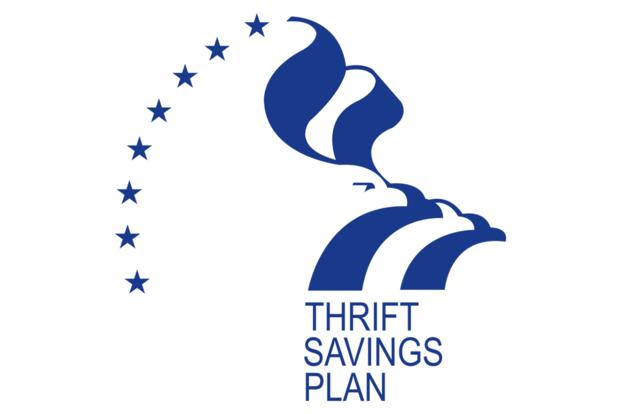Want to make sure retirement treats you well? Work for Uncle Sam, and those golden years could have a little added shine. Not only are federal retirement benefits portable, but being the largest employer provides the government excellent leverage in securing benefits for its employees.
Take the example of Jane Smith, a fictional but possible example of a former federal employee. After college, Jane was hired by a large federal agency where she gained experience and insight into the workings of the federal government. After eight years of federal service, she left the federal government with a salary of $73,000 to work for a private-sector company that offered her different opportunities for growth in her chosen field.
Related: Search for Government jobs.
Portable Benefits
Despite her departure, Jane still would have earned the following portable benefits:
- Pension (FERS Basic Benefit): The Federal Employees Retirement System (FERS) provides a basic defined benefit pension after only five years of creditable civilian service. Eligibility for this benefit and its computation depends on the combination of years of service and age. Many federal employees retire as early as age 55 with lifetime retirement benefits. Jane's benefit at departure: A lifetime pension of $5,600 per year or $466 per month payable at age 62 with annual cost of living adjustments. Learn more about federal retirement.
- Retirement Savings (Thrift Savings Plan): The federal government provides an automatic 1 percent contribution to the Thrift Savings Plan (TSP) -- the government's version of a 401k plan -- for all federal employees who are covered by the FERS. In addition, the government matches the first 3 percent of employee contributions dollar for dollar, and the fourth and fifth percent get a 50 percent match. Jane's benefit: $105,000 in retirement savings with a 10 percent payroll contribution. If her investment grew at an average rate of 8 percent for 32 more years, that's more than a million dollars. Learn more about the TSP.
- Social Security: All federal employees covered by FERS are fully covered by Social Security. Government earnings count towards a future Social Security benefit just like private-sector earnings. Jane's benefit: Social security benefits of $200 per month payable at age 67 or a reduced amount payable at age 62. Learn more about Social Security.
- Long-Term Care Insurance: Long-term care insurance is fully portable. Jane's benefit: She brought it with her to her new employer. Learn more.
Current Employee Benefits
While employed by the federal government, Jane could have taken advantage of additional benefits that include:
- Disability Benefits: There are three types of disability benefits. These include:
- Long-Term: All federal employees have permanent disability retirement available while employed. This benefit is part of the FERS retirement system; eligibility ends after federal employment. Learn more about FERS disability benefits.
- Workers' Compensation: Federal employees are covered under the Federal Employees' Compensation Act (FECA), which is administered by the Office of Workers' Compensation Programs (OWCP) under the Department of Labor. Learn more about workers' compensation.
- Short-Term: Federal employees earn 13 days of sick leave each year that they can carry over during a career. After 10 years of service, a federal employee has earned six months of sick leave, which can be used for recovery from an illness or accident, maternity leave or caring for a sick family member. This benefit can be restored if a separated employee returns to federal service. Learn more about federal leave policies.
- Death Benefits: FERS provides survivor annuities for dependent children and spouses of deceased federal employees and to some former federal employees. Learn more about death benefits.
- Federal Employees Group Life Insurance (FEGLI): The government has a group life insurance benefit available to employees that can provide basic insurance equal to an employee's salary plus $2,000, as well as additional coverage of up to five multiples of basic salary. This benefit can be converted to an individual policy upon separation and also contains a living benefit for employees having a life-threatening illness. Learn more about FEGLI.
- Health Insurance: Federal employees have many types of health insurance coverage to select from during annual open season periods. These include traditional fee-for-service coverage, HMOs and the new high-deductible health plans with healthcare savings accounts. While employed and after immediate retirement, the government contributes on average of 75 percent of the cost of the premiums. Former federal employees can continue this coverage for up to 18 months after leaving federal service. Employees may also use flexible spending accounts to pay for out-of-pocket medical and dependent care expenses. Learn more about these benefits from the US Office of Personnel Management and the FSAFEDS.
- Annual Leave and Holidays: New full-time employees earn 13 days per year for the first three years of employment. Employees with three to 15 years of employment earn six hours per pay period (20 days per year) and employees with 15 or more years of employment earn eight hours each pay period (26 days per year). Part-time employees earn annual and sick leave in proportion to the hours worked. Unused annual leave (not to exceed 240 hours) may be carried over into the next leave year. When an employee resigns or retires from federal service, he is paid any unused annual leave in a lump sum payment. Learn more about federal leave policies.
Related: For the latest veteran jobs postings around the country, visit the Military.com Job Search section.
The Next Step: Find the Right Veteran Job
Whether you want to polish up your resume, find veteran job fairs in your area, or connect with employers looking to hire veterans, Military.com can help. Sign up for a free Military.com membership to have job postings, guides and advice, and more delivered directly to your inbox.











